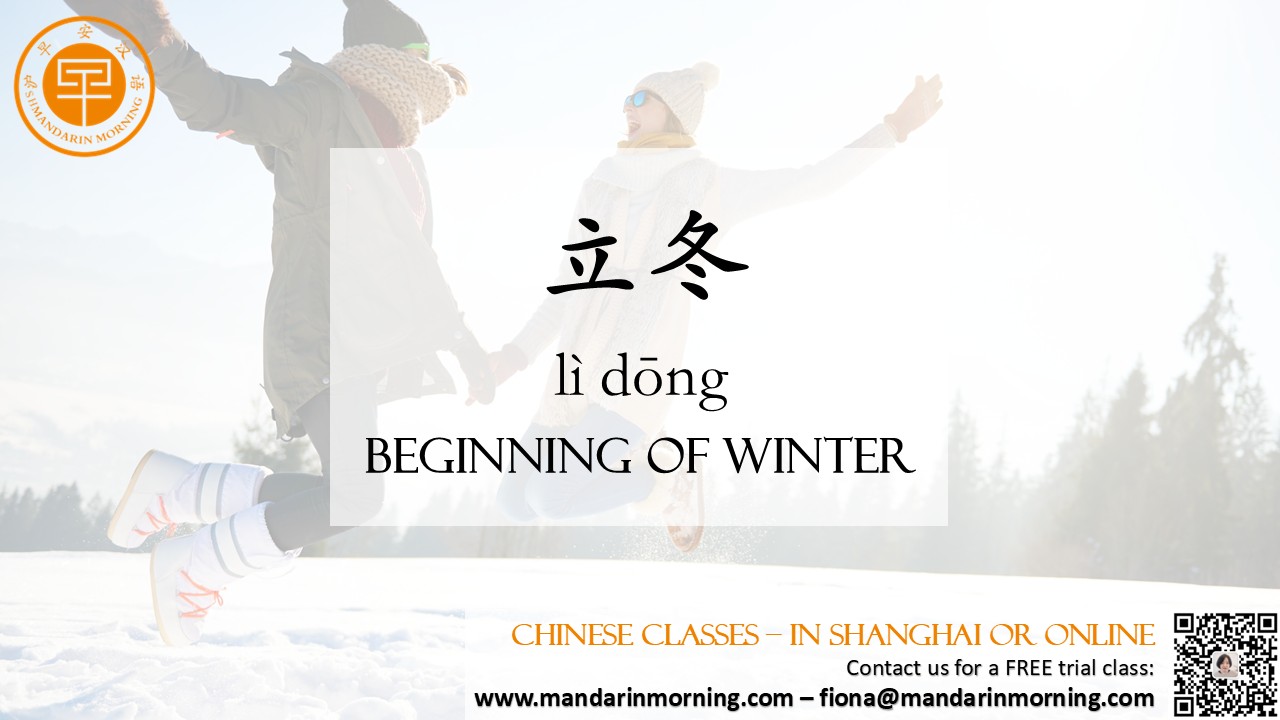【Learn Chinese】November Vocabulary in Chinese |
| As the last autumn leaves fall and a crisp chill fills the air, November presents a beautiful blend of changing scenery and warm festivities. It’s the perfect time to cozy up with a hot drink and learn some seasonal Chinese vocabulary! Let’s explore the words and phrases that capture the essence of this unique month.  The Feel of November: Weather & Nature November marks the deep transition into late autumn. The weather starts to turn truly cold, and you’ll often hear people talk about: 天气变冷了。(Tiānqì biàn lěng le.) - The weather is getting colder. 初冬 (Chūdōng) - This is a beautiful term meaning "the beginning of winter." It perfectly describes November's position on the calendar, not quite full winter but definitely past autumn's peak. 落叶 (Luòyè) - Falling leaves. You'll see sidewalks and parks covered in beautiful 落叶. 寒风 (Hánfēng) - The cold wind that starts to blow, signaling that winter is on its way. November's Celebrations: From Shopping to Gratitude This month has two major events that are great for language practice! 双十一 (Shuāng Shíyī) - Double Eleven Also known as 光棍节 (Guānggùn Jié) - Singles' Day, this has become the world's largest online shopping day. It’s a festival of discounts and deals! You can learn useful phrases like: 打折 (Dǎzhé) - On sale / Discounted 网购 (Wǎnggòu) - Online shopping 感恩节 (Gǎn'ēn Jié) - Thanksgiving While not a traditional Chinese holiday, it’s widely recognized and celebrated by many English learners and international communities. It’s a time for: 感恩 (Gǎn'ēn) - To feel grateful / Thanksgiving. The core spirit of the holiday! 团聚 (Tuánjù) - Family reunion. This is a very important concept in Chinese culture as well. 火鸡 (Huǒjī) - Turkey! Now you know what to call the main dish. Cozy November Activities What do people do in November? It’s all about staying warm and enjoying indoor comforts. 喝热茶 (Hē rè chá) - To drink hot tea. A simple, daily pleasure. 吃火锅 (Chī huǒguō) - To eat hot pot. This is the ultimate social meal for colder weather! As the temperature drops, invitations to 吃火锅 become much more frequent. 穿毛衣 (Chuān máoyī) - To wear a sweater. Time to unpack your warm 毛衣! A Cultural Note: 立冬 (Lìdōng) In the traditional Chinese solar calendar, 立冬 (Lìdōng), or "Start of Winter," usually falls around November 7th-8th. This is a day when families traditionally eat nourishing foods to build up energy for the cold months ahead. Dumplings (饺子 Jiǎozi) are a particularly popular food to eat on this day! |